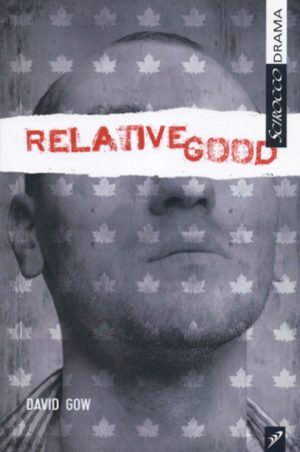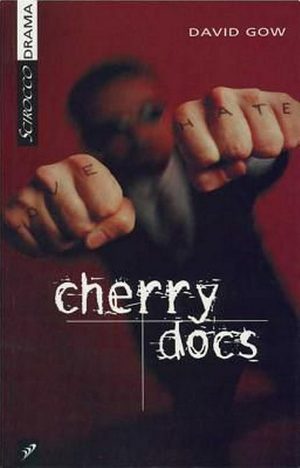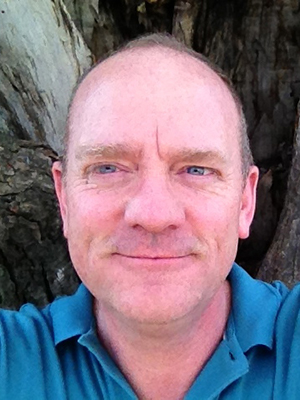Posted September 7, 2023
The Interview – David Gow
David Gow
David Gow’s plays include Cherry Docs, Relative Good, Bea’s Niece, The Flight of Peter Pumpkineater, Stream, The Wake of the Bones, Boilerplate, The Friedman Family Fortune and Elephant. Gow’s first feature film, Steel Toes, which is based on his hit play Cherry Docs, has won numerous awards in the US and Canada, including Best Feature Film (Beverly Hills Film Festival) and Best Independent Feature in America (Cine Golden Eagle). David is a member of the Dramatists Guild of America and the Playwrights Guild of Canada.
David, one of your best-known plays is the two-hander Cherry Docs, a drama about a Jewish public defender who is appointed to represent a neo-Nazi skinhead charged with a racially-motivated murder. What inspired Cherry Docs? In these polarized times, why is it important for us to see plays like Cherry Docs?
Cherry Docs was inspired, over twenty-five years ago, by the strong presence of Neo-Nazis (white supremacists) committing violent and fatal attacks in our society, fifty years out from World War II. Now, seventy-five years out, the presence of this group is so strong, they are rated as the number one terrorist threat in the USA, and they are also quite strong in Canada. A real argument can be made that the USA is in the midst of a culture war, and that the rights of many are being violated, due in large part to white supremacist views. The play, strangely, still reads as very current, not by offering a cure for these challenges, but by looking at the issues in an in-depth and personal manner, which can be engaging and galvanizing for audiences. Cherry Docs, although it is in some ways a dialectic, is strongly engaging as fiction. While the play might have seemed to portray a very tiny radical fringe when it was written, that is no longer so, and we are seeing this daily in the news, both here and abroad.
Your plays have had productions all over the world, from Sao Paolo to Krakow, from San Francisco to Jerusalem. Have you been able to travel to see some of your international productions? Can you tell us about one or two of them?
Seeing my plays produced here and abroad has been beyond gratifying. Seeing a production of Cherry Docs in Israel, I was astonished to hear the actors had memorized three versions of the play, an hour-long version, a ninety-minute version, and a “full-length” version, which ran over two hours. How the play stretched to such a length in translation was a mystery to me, as was the actors’ ability to keep three versions in their memories. Watching the play in other languages such as Polish or Hebrew, which I do not speak, gives me the odd sensation that I understand the language, as I know the lines pretty well. Every production changes the play: set against a cliff in nature with live hawks and a rattlesnake turns it into Epic Naturalism, another design schema renders it into Science Fiction, and perhaps—in the same production—as a voyage to the eternal. I did not see the production in Berlin or others in Germany or in Poland and would have liked to. The play ran in both countries for many years, in Poland for a decade and more in the country’s national repertoire. It’s very moving thinking of all the theatre workers and artists, preparing a play, crossing town on subway systems, or bicycles, carrying a prepared lunch in a bag…all this work to support the world of the play, which is ultimately what I think of and call “the pretend.”
Can you tell us a little about your work in film and television?
I’ve worked for decades in film and TV, and my most cherished role was as the director of my own film called Steel Toes, which is based on my play Cherry Docs. It took me years to bring the thing to production, and it would not have happened without my producers Francine Allaire and Arnie Gelbart. The film has been seen by millions of people around the world in many languages. It was quite a thrill to make a kind of “living,” or durable record of how I see the material.
David, you were born in Ontario, started your career in Montreal, and have lived on the west coast in both Canada and the USA. What do you like about each of those places?
I have lived in Montreal quite a lot, Toronto for a decade, the Eastern Townships of Quebec, Los Angeles, coastal BC, New Orleans and NYC for shorter durations. I love experiencing the topography in particular, and climate of a place and surrounding areas, but I also deeply enjoy the people of all those places, and hearing how they speak, the cadences, the rhythms, and hearing in how they talk a kind of history, or trace of history, in phrases, idiom, and mindset.
We are hearing a great deal about theatres that are struggling to find audiences. Are you optimistic or pessimistic about the future of theatre?
I am optimistic; however, I think that theatres in many countries struggle to find an audience, which is so much harder than when the audiences struggle to find the theatre. People must be entertained or engaged in fiction or they don’t come sit in a seat for a couple of hours or more.
Do you have any advice for aspiring playwrights?
Consider learning to write long form fiction instead.
What are you working on now?
I am working on having the courage or gumption to try to effectively market my most recent plays. Theatre developed in the last century into an Artistic Director-curated form; in this schema, the AD wants or needs the audience to identify with the theatre’s choices and presentations, or even with their own as a curator. This means that with the notable exception of a few playwrights in each country, one struggles greatly to have one’s work be produced or even read—even when one has been produced internationally in over a dozen languages for decades. But I suppose, if that is one’s track record, it is not so bad.
-
 Relative Good$9.99 – $14.95
Relative Good$9.99 – $14.95 -
 Cherry Docs$9.99 – $15.95
Cherry Docs$9.99 – $15.95

